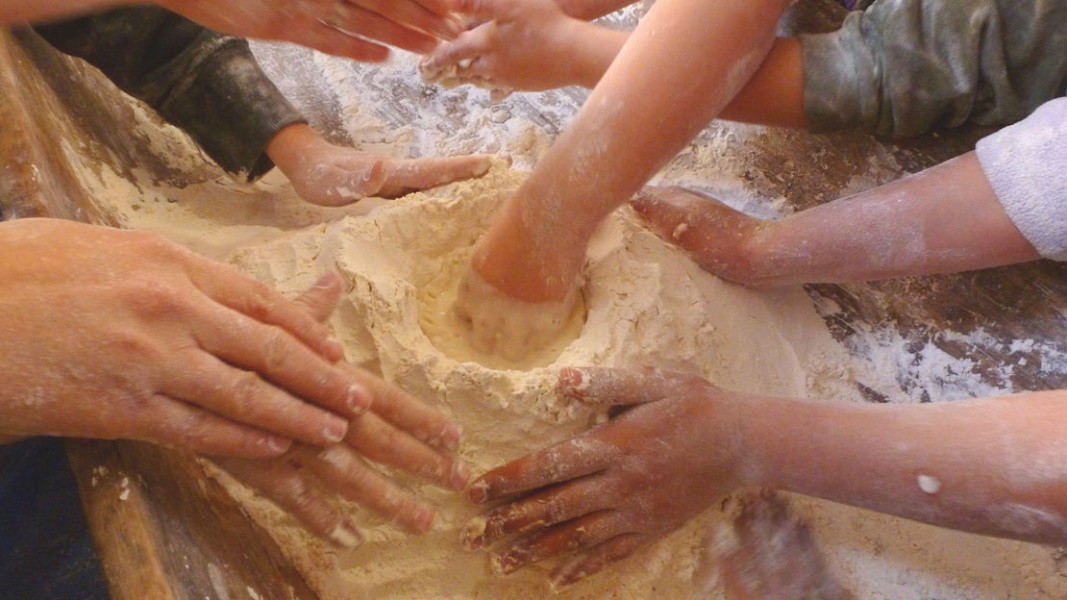We say stuffed peppers, moussaka, beans in a pot are traditional national dishes, but few people sit down to think that the products that go into their making were actually brought to Bulgaria in the 19th century from America. Knowing this, culturologist Petya Krusheva delved into medieval Bulgarian cuisine to study food, but also the way people in the Middle Ages regarded the world around.
The surrounding world was the main source of food for the people inhabiting our lands. In winter they would eat meat, in spring they would turn to vegetables. Unfortunately, no cook book from those times has come down to us, and we can only guess what medieval cuisine was like from scraps of information found in passionals and religious books, reports by passing knights and travelers.

“There are three manuscripts from the beginning of the 16th century – the South Slavic, the Prizren and the Macedonian manuscript from each of which no more than a few pages have come down to us,” Petya Krusheva says. “They contain rules on what to eat during the 12 months of the year. The purpose of these diet calendars, typical of the Middle Ages, was to help people avoid big health problems. And though the idea of a healthy diet did not exist, people did think food is important.”
There was nothing random in the way Medieval Bulgarians sat down to table, the culturologist explains. Every meal started with a prayer to thank God. What each person ate depended on their social status, but also on the season and on religious norms. And who sat next to whom, the type and variety of food – all this supplemented the ritual symbolizing the attitude and respect for the given guest.

“Bread takes centre-place in medieval gastronomy,” Petya Krusheva says. “It is more than a symbol of food, it is a cure because it is the flesh of Christ, i.e. it is a piece of the divine, connected with human life in its entirety – with procreation, with affluence, and, of course, with the divine. That is why bread cannot be thrown away, it is wrapped in a special piece of cloth called mesal, woven in white, blue, red or yellow – the colours of the sun, of the spirit.”
Food as such carries a lot of symbolism.
“Things unknown were invariably thought of as evil,” Petya Krusheva says, explaining the suspicion medieval people had for everything alien, including food coming from far lands. “Maybe the reason is that we live at a crossroads, with many peoples, often on the warpath, passing through these lands. So, the common man believed that the “other” was an enemy, that when he came he brought inherent evil with him. And that even if the strangers were peaceable, they brought omens of disease, of things that would bring misfortune to the family, the clan, the town. When the women found out there were guests like that coming, they would quickly bake the simplest of bread, out of nothing but flour and water, and serve it to them warm in the belief that it would placate them. That may be how the notorious Bulgarian hospitality came into being – not so much out of a desire to feed the weary, but to protect our own selves.”

Whatever changes there may have been through the ages in terms of taste, variety of products and ways of cooking, whatever meaning or superstition food may have been imbued with, it continues to bring us together. “Significantly, every war ends with the signing of a peace treaty, and that treaty is concluded at table,” Petya Krusheva says.
Interview by Lyudmila Sugareva, BNR-Plovdiv
Editing by Diana Tsankova
Photos: libraryProducts made of wool inspire the feeling of inner comfort and warmth in the visitors of the Plovdiv Regional Ethnographic Museum. The exhibition "Bulgarian felts - a message from antiquity" presents an ancient craft, which is..
The Hague, a city in the south of the Netherlands, the administrative centre and the place where the Queen lives and works... Hardly anyone associates this city with Bulgarian folklore and traditions. But the fact is that the interest in..
On June 28 and 29th, the city of Razlog, in the region of Blagoevgrad, will present the magic of Bulgarian folklore. In these days, the XIII Festival of traditional horo dance will be held on the central square "Preobrazhenie". The..

+359 2 9336 661
